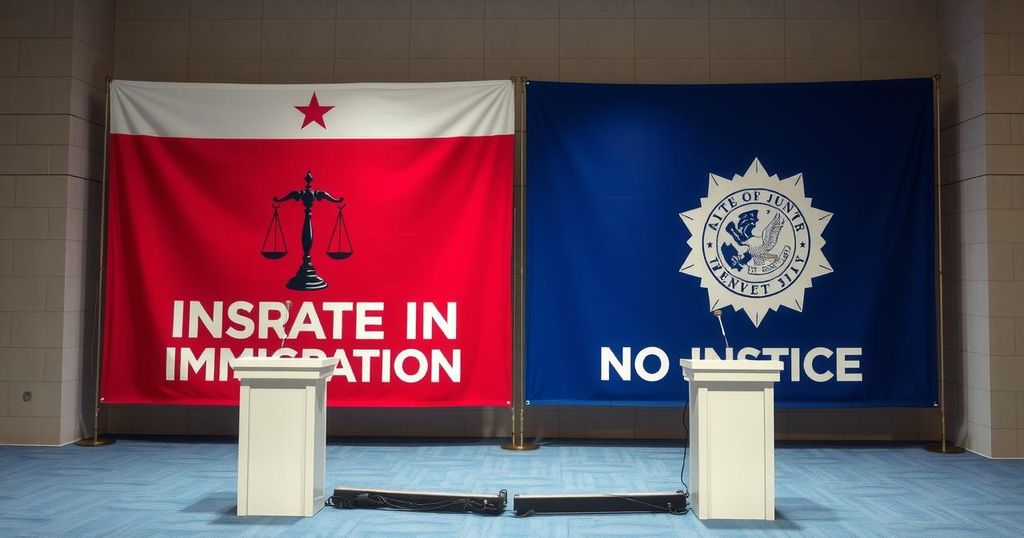The Kilmar Abrego Garcia case highlights a significant divide in the immigration debate, with Democrats advocating for due process while Republicans emphasize security. High-profile figures in the Democratic Party are rallying around Abrego Garcia’s wrongful deportation, framing it as a violation of civil liberties. Meanwhile, the Trump administration contends that such deportations are crucial for national security. The case raises questions about the adherence to judicial rulings and the implications for constitutional principles.
The case of Kilmar Abrego Garcia, a Salvadoran citizen deported under the Trump administration, has intensified the immigration debate, contrasting Democratic values of due process against Republican concerns about immigration and safety. This case exemplifies a stark divide in political perspectives, with Democrats advocating for individual rights while Trump and Republicans emphasize security threats posed by immigrants.
Senator Chris Van Hollen and other Democratic leaders are rallying behind Abrego Garcia, framing his wrongful deportation as an infringement on civil liberties. Despite Trump’s administration labeling him a gang member, the reality of his deportation raises broader questions about government overreach, appealing strongly to Democratic principles like due process.
Initially fragmented, Democrats are amplifying their focus on the Abrego Garcia case, with several lawmakers planning visits to ensure justice. High-profile figures, including Hillary Clinton and Bernie Sanders, have weighed in, condemning the alleged government overreach exemplified by this case and rallying public sentiment against Trump’s immigration policies.
The Trump administration, identifying Abrego Garcia as a potential threat, insists on maintaining a firm stance against illegal immigration. By positioning itself in opposition to judicial guidelines, the administration risks alienating public opinion, particularly as polls reflect a majority favoring adherence to court rulings. This creates a critical moment for Democrats to capitalize on any political missteps by the Trump show.
Representative Glenn Ivey articulates the dual nature of the issue as both immigration and constitutional rights, suggesting a significant conflict that could redefine the separation of powers in contemporary politics. He emphasizes that addressing this case transcends immigration alone, highlighting its potential implications on the nation’s constitutional framework.
The Kilmar Abrego Garcia case underscores the deepening divide between Republican and Democratic views on immigration, highlighting issues of due process and government accountability. As Democrats unify to challenge perceived overreach by the Trump administration, the debate intensifies regarding the intersection of immigration policy and constitutional rights. This case not only serves as a focal point for immediate discussions but also poses broader implications for the future of immigration law and individual liberties within the United States.
Original Source: apnews.com




